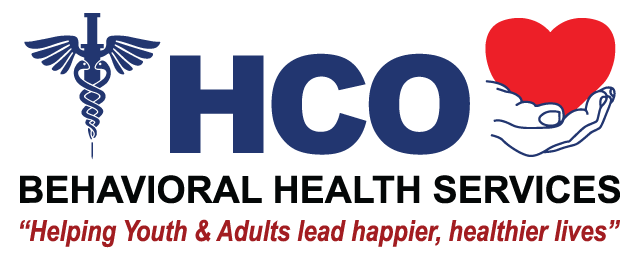Why Focusing on Economics During the Pandemic Can Be Harmful to Mental Health
It’s hard to escape. The covid-19 pandemic, its economic fallout, the startling news of new cases in the media — it’s everywhere. From social media memes to news stories, we’re bombarded with updates, stats, conjecture, and gossip around the clock. Many politicians are making statements about reopening the country’s businesses early despite potentially devastating health risks. And even in our virtual catch-ups with friends and colleagues, it’s almost impossible to avoid discussing the crisis — try as we might!
It might seem harmless enough; maybe we’re casually lamenting the fact that our favorite local restaurant has been forced to close down, or expressing concern about the latest round of workers who have been laid off. Maybe you’re helping a friend who’s worried about losing their job. Maybe you’ve recently lost your job.
But talking about the economy during this pandemic can actually run the risk of negatively impacting our wellbeing. Let’s look at the effect these conversations are actually having on our mental health?.
How Economic Crises Affect Us: What Does The Evidence Say?
We know how hearing about the pandemic’s effect on the economy makes us feel: concerned, stressed, helpless. But there’s evidence to support the idea that economic crises affects our well-being more deeply, too.
According to Guido Van Hal, author ofThe True Cost of the Economic Crisis on Psychological Well-Being, “The recent economic crisis has led to many negative consequences, not the least having to do with the mental health and well-being of the populations involved. Although some researchers say it is still too early to speak about a relationship between the economic crisis and a rise in mental health problems resulting in suicides, there is solid evidence for the existence of such a relationship.”
The state of the economy also results in stressed out Americans. The American Psychological Association’s 2017 report, Stress in America: The State of Our Nation found that 35% of Americans said the economy was a cause of stress for them. It stated: “Adults also indicated that they feel conflicted between their desire to stay informed about the news and their view of the media as a source of stress. While most adults (95 percent) say they follow the news regularly, 56 percent say that doing so causes them stress.”
Bad News Causes Us To Catastrophize
There is also evidence to indicate that not only does watching bad news make us feel worried and down, it makes us worry about other things too.
A 2011 study published in The British Journal of Psychology asked three groups of people to watch TV news bulletins that were edited to show either positive, neutral, or negative material.
The researchers concluded: “Participants who watched the negatively valenced bulletin showed increases in both anxious and sad mood, and also showed a significant increase in the tendency to catastrophize a personal worry. The results…suggest that negatively valenced TV news programmes can exacerbate a range of personal concerns that are not specifically relevant to the content of the programme.”
Talking About The Economy Fosters Stress And Anxiety
But it’s not just watching and reading news about the economic crisis that can damage our mental health, it’s chatting about it too.
Talking about economics and finances during the pandemic can exacerbate mental health symptoms by increasing levels of stress and anxiety. Individuals may notice that they begin to feel increased levels of fear, sadness, despair, or hopelessness.
So what exactly is it about discussing the current dismal state of the economy that increases our feelings of anxiety and hopelessness? it’s all to do with control.
At this particular moment in time, there may not be much a person can do to increase their financial security. Many folks are dealing with unemployment, employment uncertainty, or both. This contributes to an overall feeling of lack of control combined with an uncertainty around how and when the pandemic crisis will end.
Avoid Discussing The Economy; Focus On Small Changes Instead
How can we mitigate the effects of the economic crisis on our wellbeing? Again, it comes down to control.
In situations like this one, I think it’s important that we focus on what we can control. Instead of talking about the dire economic implications of the pandemic, focus instead on your own personal finances and how you might be able to make some small changes to feel more in control of your money at this particular moment.
But we know this is easier said than done, and it’s not always possible to avoid speaking about economics. How can we minimize the effects in that case?
Focus on what you can control and avoid getting too caught up in the potential long-term consequences of the situation. Try to avoid letting your mind wander to worst-case scenarios.
Put Healthy Boundaries In Place
First order of business — we need to put boundaries in place when it comes to reading about the current situation.
Setting limits is important for healthy news consumption. Be sure that you’re getting your economics-related news from trusted sources and try to limit your consumption of news articles to just a few per day. If you find yourself feeling overwhelmed, it could also be a good invitation to scale back from the news for a bit – maybe even take the day off.
Try To Stay Optimistic: We Won’t Be In Crisis Mode Forever
In conclusion, it’s important to remember that reading and discussing bad news can lead us to catastrophize — and that can be very damaging for our mental wellbeing.
The reality is, no one knows for certain what the economic consequences of the pandemic will be. Instead of becoming too immersed in the potential worst-case scenarios, try to maintain a day-to-day approach in your life. Right now, our country is in crisis mode, but we won’t be forever. Just like in previous economic crises, we will learn from these struggles and we will move forward.

